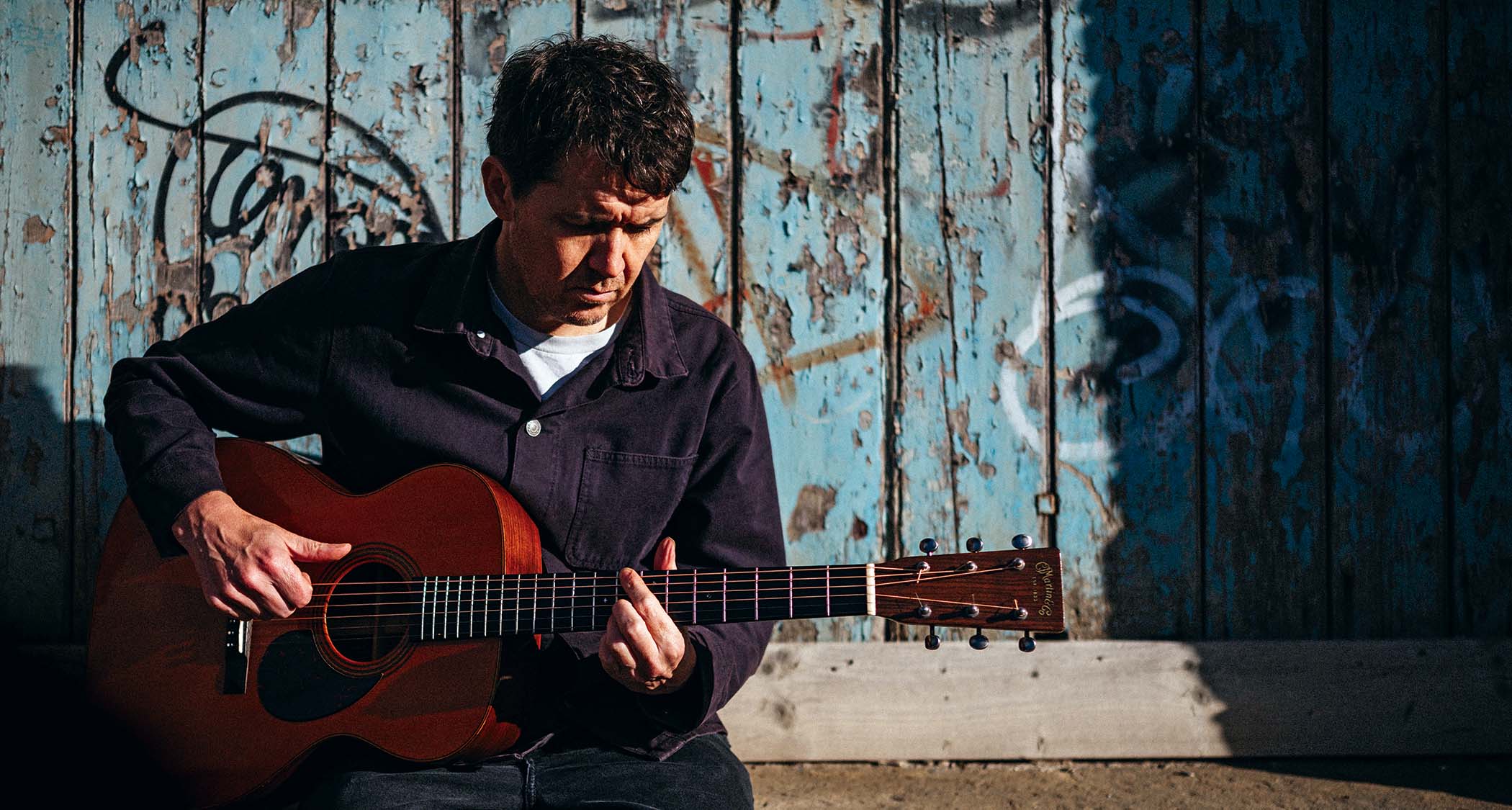“I asked Eric, ‘Can I play them?’ And he said, ‘Yeah, of course.’ So he went home and I had full licence to play his guitars”: Stephen Dale Petit on break-ups, cancer, Eric Clapton and why the original “blues hooligan” is no gun-for-hire
Grave illness and a broken heart have tested Stephen Dale Petit – but the bluesman tells us that completing his Clapton-bolstered masterpiece, Be The Love, is all that matters
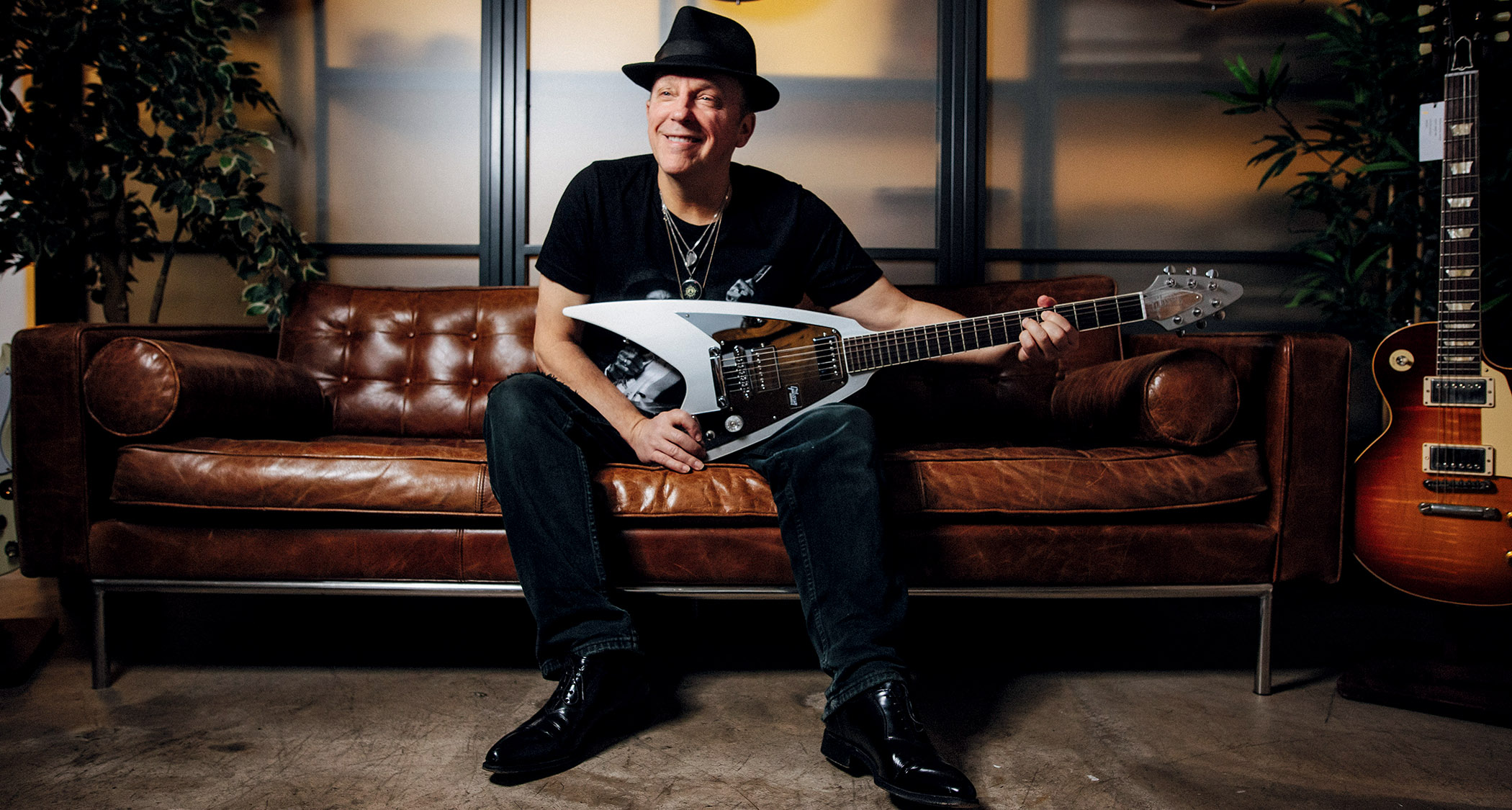
All the latest guitar news, interviews, lessons, reviews, deals and more, direct to your inbox!
You are now subscribed
Your newsletter sign-up was successful
For Stephen Dale Petit, new album Be The Love holds a Molotov cocktail of emotions. The Anglo-American bluesman takes a deep breath and decides which one he’ll dredge to the surface first.
There’s pride in an album that is hands-down the career peak of the man once dubbed a “blues hooligan” by Mojo, who has revved and ripped up trad-roots since he debuted with 2008’s Guitararama. There’s heartbreak bleeding across seven tracks that kick the hornet nest of a failed relationship.
Alongside that, there’s gallows humour, which the 56-year-old draws upon more each day as he battles a life-threatening illness. “I didn’t start out trying to make a masterpiece,” he reflects. “But I was diagnosed with cancer in November 2022, within months of starting Be The Love.
“It certainly occupied my mind, the premise that this album wouldn’t get finished. So music became everything. I thought, ‘Fuck it, I’m not going to try to please anyone – the songs are the songs, and this album is me.’
The songs on your new album, Be The Love, aren’t written about your illness, are they?
No, I wrote them from a whole different place. The relationship I was in broke up, earlier in 2022. She also happened to be in my band. It was all unclear for a few months. And when I established what the new reality was, I literally broke down. Then I grabbed a guitar and Cherish A Ghost came out.
I wrote Cherish A Ghost from the wound, when it was still a wound, in the process of healing. I cried and cried
They say there are five life events that are all equal as emotional minefields. Birth, death, marriage, divorce and moving house. This relationship might as well have been a divorce. We were so close. And I wrote Cherish A Ghost from the wound, when it was still a wound, in the process of healing. I cried and cried.
All the latest guitar news, interviews, lessons, reviews, deals and more, direct to your inbox!
But you go through every emotion under the sun. A Better Man is almost like a rediscovery: ‘Okay, there is no us, so what’s my identity?’ All the songs are about her, except one – Sky Scraper – which is about another person. That’s the ‘new beginning’ song.
What makes great guitar playing for you these days?
My priority as a player now is emotion. Being able to move people
Since I was 12, I’ve been a guitar player. And you want to get better and better, but the whole rating system is like in football. You know, who’s faster? Who’s technically better? Or whatever the category is. It’s the way it’s always been. But it’s a nonsensical quest.
So my priority as a player now is emotion. Being able to move people. Which is akin to the same thing – but not exactly. Because you can move people with excitement and exhilaration as much as you can with passion, sadness, poignance and pathos.
What were the key guitars and amps on this album?
The main amp was my ’65 Marshall JTM45. It’s a musical instrument in itself. All the amp makers who advertise in the magazine will hate this, but I consider most modern amps sound processors. I like the ones that use hand-wiring and hand-everything. No digital. PCBs are a no-no. I used a Budda wah on Low And Tight. That’s a killer track. I’ll put it on in my car and just think, ‘Fuck.’
The electric guitar tone is pretty fucking cool on Sky Scraper. The dirt is ferocious. But it’s never like metal
Guitars? The tracking was my red 355. I have two of them, but the one I used, I think it’s a 2008. And then I have a reissue of the walnut 70s 355 that BB King played a lot. I played my 2008 Firebird, too.
The electric guitar tone is pretty fucking cool on Sky Scraper. The dirt is ferocious. But it’s never like metal. Because a lot of metal guitar is so compressed that it gets quite squishy, actually. I used a L-4 CES for the basic track.
For overdubs, it was a 2012 three-pup Firebird Non-Reverse with a Zvex Woolly Mammoth, and the rest was my red 355. I used a Small Clone with a Mojo Vibe for the flange/chorus and a Klon for the solo. I also used a Lazy J 20 and J 10, separately, for everything amplified.

We associate you with a Firebird. What’s the appeal?
In the beginning, it was because I’d seen people play Firebirds and thought they looked mindblowing. You know, visually, it’s a wing, it’s flying, it’s freedom. I remember Eric Clapton and Johnny Winter playing them.
There’s also something about the Firebird that works with my frame. I can be ever-so-slightly leaning forward and it just hangs as if it’s on a platform, like it’s weightless. And the accessibility to the upper frets is astonishing.
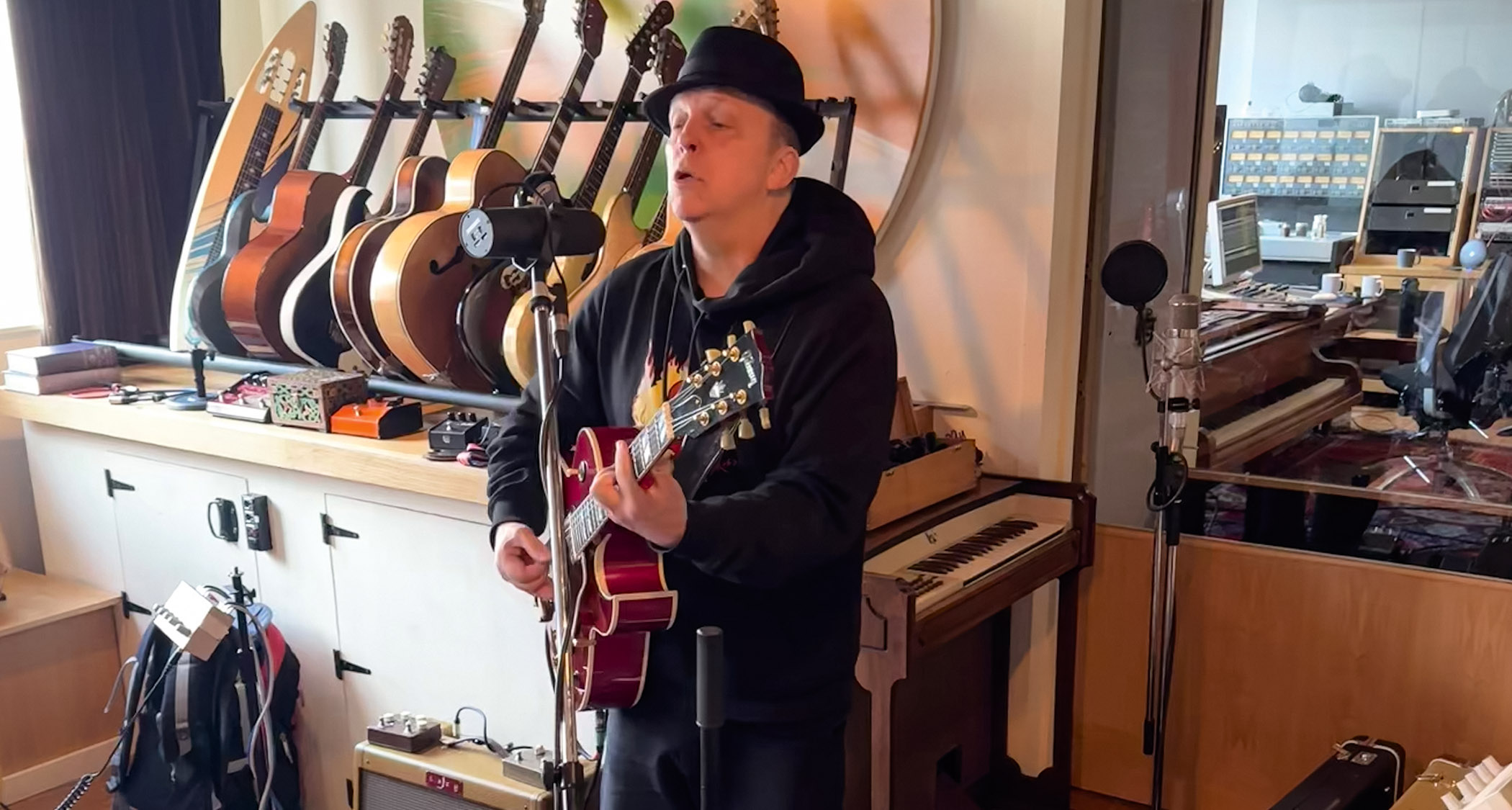
What guitar sounds do you consistently look to for inspiration when writing?
There was something about the ’60s. You had the coolest guitar sounds in a Top 10 song. The feedback on I Feel Fine. The stabs on She’s A Woman: fucking great. The riff on Paperback Writer: fucking phenomenal. Heart Full Of Soul, any of the Yardbirds ones.
You know, Hendrix and Sunshine Of Your Love were in the charts. I sometimes use this as a thought exercise to sonically free up people when I’m working with them: imagine it’s 1965 and Satisfaction doesn’t exist, then you hear it for the first time. That Gibson fuzz pedal – that would have been the most mindblowing sound coming through the radio. And they played Firebirds as well.
What was your most formative experience as a young player?
It was magical being a teenager in Huntington Beach watching the blues guitarists at The Golden Bear. Like Albert King. He played left-handed and he was doing shit where I was just, like, ‘What? How?’ You know, two-step bends with total pitch-perfect accuracy.
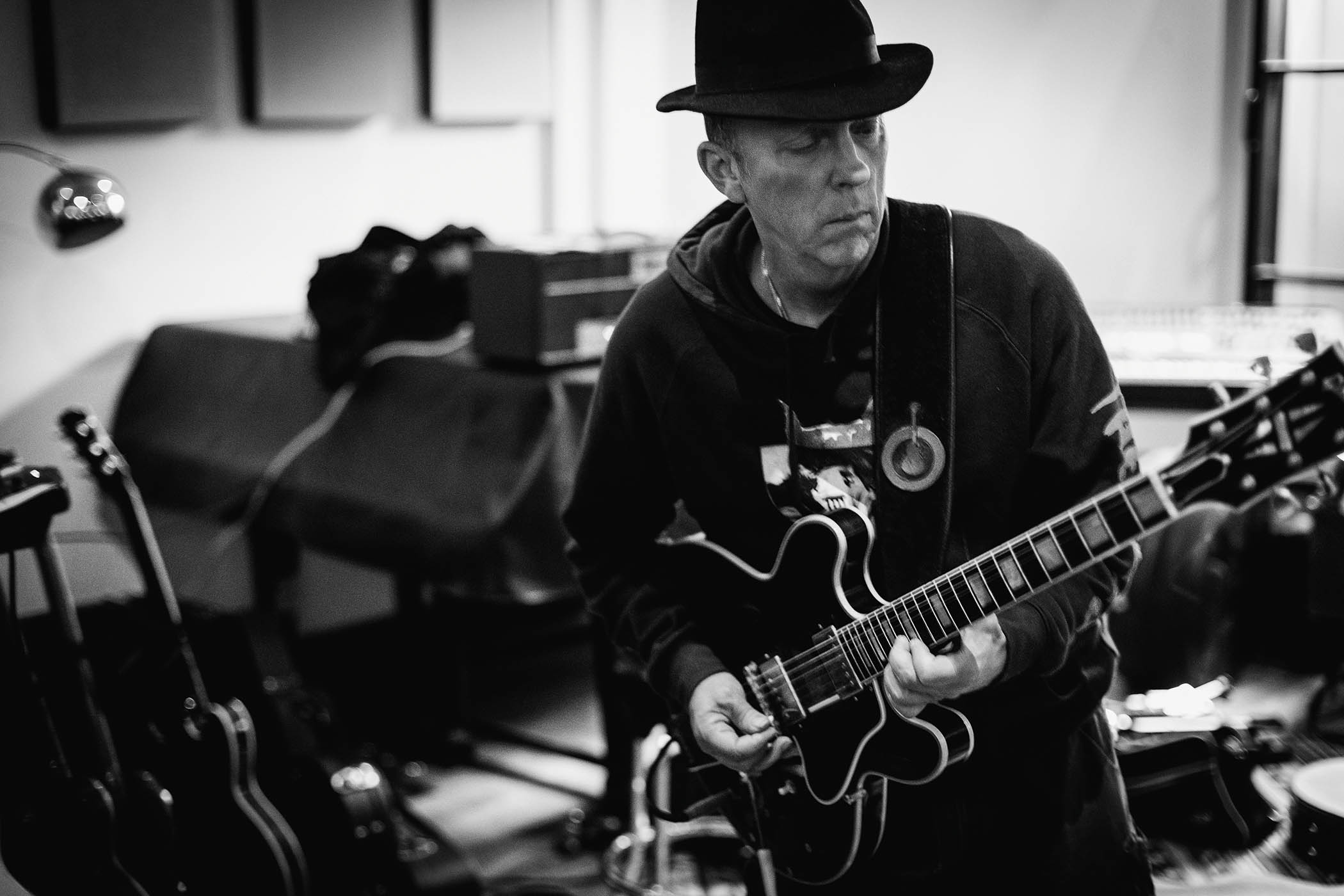
Sky Scraper, your “new beginning” song, is such an ambitious track, how it shapeshifts…
I love tempo changes because you have to be a real band to pull that off. Like, people who play in the pit of a West End show – those parts can be written out, but it’s never the same as when it’s done by feel. When you know what direction it’s going, but you don’t have exact measurements, that’s the magic. Because it morphs organically and becomes – in our instance – a three-headed creature, moving as one.
So if at any point I sound like a big-head, then none of this is, like, ‘I did it on my own.’ I worked with some bona fide grade-A geniuses
Sky Scraper and Low And Tight are head arrangements, nothing written down, not even charts. The bass player, Jim Mortimore, and drummer, Sam Walker, have been playing together since they were teenagers and that generates musical magic as there’s tangible telepathic communication. Jim is a sound engineer as well – about 40 per cent of the overdub sessions were with him.
The wild, discordant guitars in the How Much Love? outro were from a session with Jim, and I’d never before experienced the adult version of toddlers playing with paint on unlined paper – that sheer innocent joy.
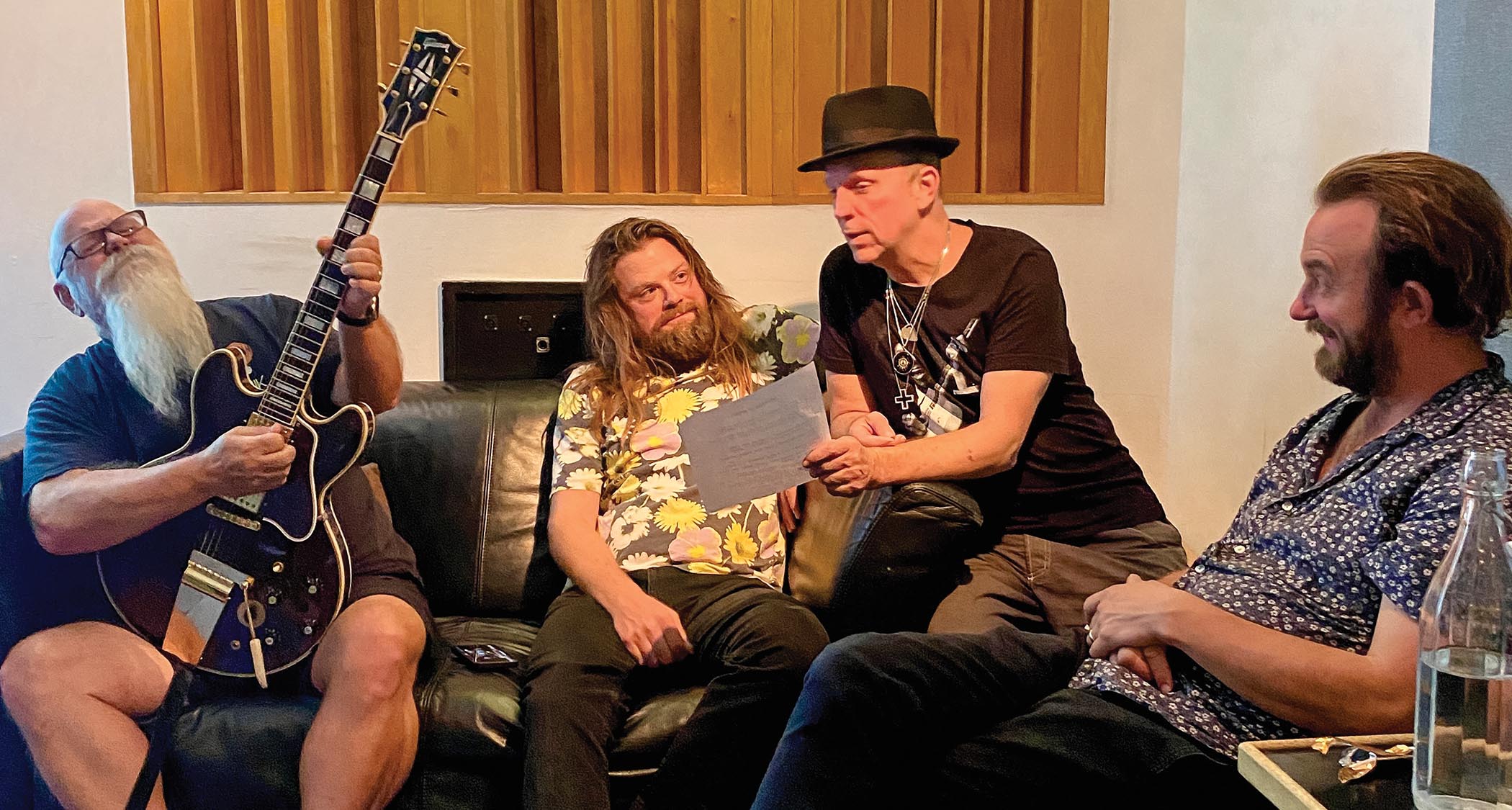
So if at any point I sound like a big-head, then none of this is, like, ‘I did it on my own.’ I worked with some bona fide grade-A geniuses.
My co-producer, Vance Powell, listened in Nashville to my unamplified guitar and vocal melody ideas as iPhone recordings and we’d talk through each song. Charlotte Glasson was the icing on the cake, arranging strings and horns on four songs – and playing on Sky Scraper.
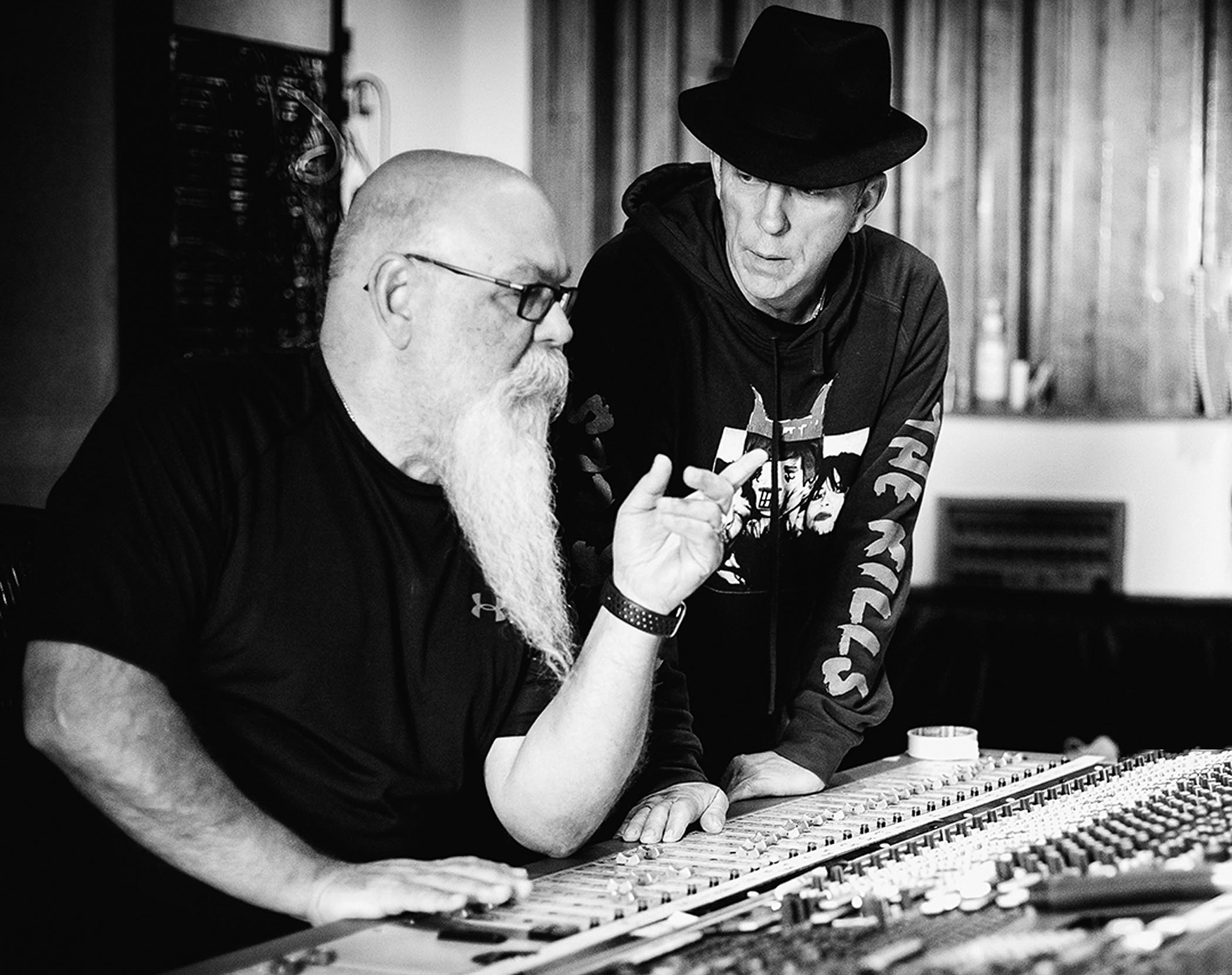
Diamond is another standout on the album – and a more positive song?
I thought, ‘I don’t want a whole song cycle of intractable sadness, bitterness and invective. There were a lot of amazing times, too – so let’s celebrate them.’ That’s what Diamond is. There’s a section of acoustic chords I’m really pleased with. Those big strums are Boz Boorer’s ’70s J-200. Gorgeous guitar.
I just strummed it into the air and said, ‘This is going on the recording.’ That instrument at the top of Diamond is a bass diddly-bow – an ‘E’ bass string nailed to a piece of wood, with fret markings made with a Sharpie, played using a very heavy slide. I got the intonation in about 10 minutes and away we went. Boz plays the lovely floaty fingerpicked pattern in the second verse.

And Boz is one of several special guests?
Yeah, Albert Lee plays the Fender tones on How Much Love? – let’s not forget him! We recorded that at Hoxa HQ, and it doesn’t do half-day hire, so after a four-hour session with Albert, I was on a creative high and set about creating the outro slide part on my 355.
I was just throwing myself off of the cliff – I had no idea what it was going to be – but it’s my favourite slide playing I’ve ever done
I was just throwing myself off of the cliff – I had no idea what it was going to be – but it’s my favourite slide playing I’ve ever done. I also like the solos on Gift Horse. The middle one is wild, then for the end one, it’s Sam the drummer, who goes feral and I get to be more nuanced.
And then there’s the guest solo that Clapton contributed on A Better Man…
It just felt totally right. I had built this two-and-a-half minute section of music for him. We recorded the song and I just told everybody, ‘There’ll be a solo there from a special guest.’ Nobody really interrogated me. I sent Eric a rough mix and he came back to me, a bit grumpy.
He said, ‘Well, lockdown is finished and now I’m getting inundated.’ So I thought, ‘Oh well, that’s his way of saying no.’ But he got back to me the next day and said, ‘Look, I don’t mean to be a grump, but it’s going to be a long wait.’ I was just getting ready to start chemo, so I thought, ‘Well, fine, I’m in no hurry.’
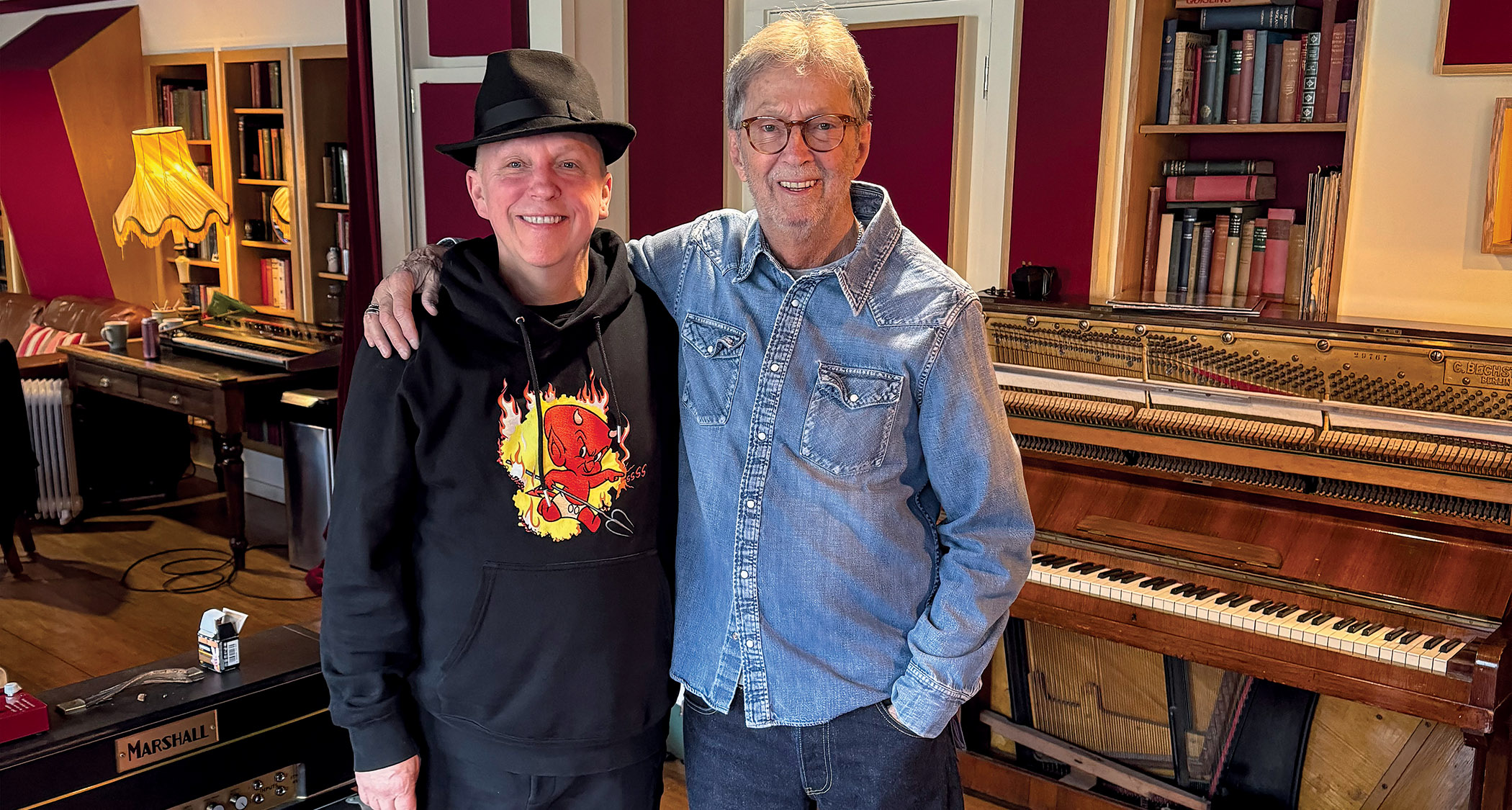
What do you remember about the session?
He was standing 2ft from me at Hoxa HQ, facing the speakers. When he was done, he said, ‘Well, what do you think?’ And I said, ‘I want to cry.’ Because I was so moved. But there were some quick glances between Eric and his tech – like, ‘Er, what does he mean?’ – so I quickly said, ‘No, no, I mean that in the best possible way!’
His solo is fucking insane. That bit where he locks in and repeats a phrase – I’m not saying he didn’t know what the fuck he was doing. He did map out certain bits. But he turned off his thinking brain and turned on his channel – his brain is literally a conductor, channelling the energy from Pluto, Uranus, Jimi Hendrix…
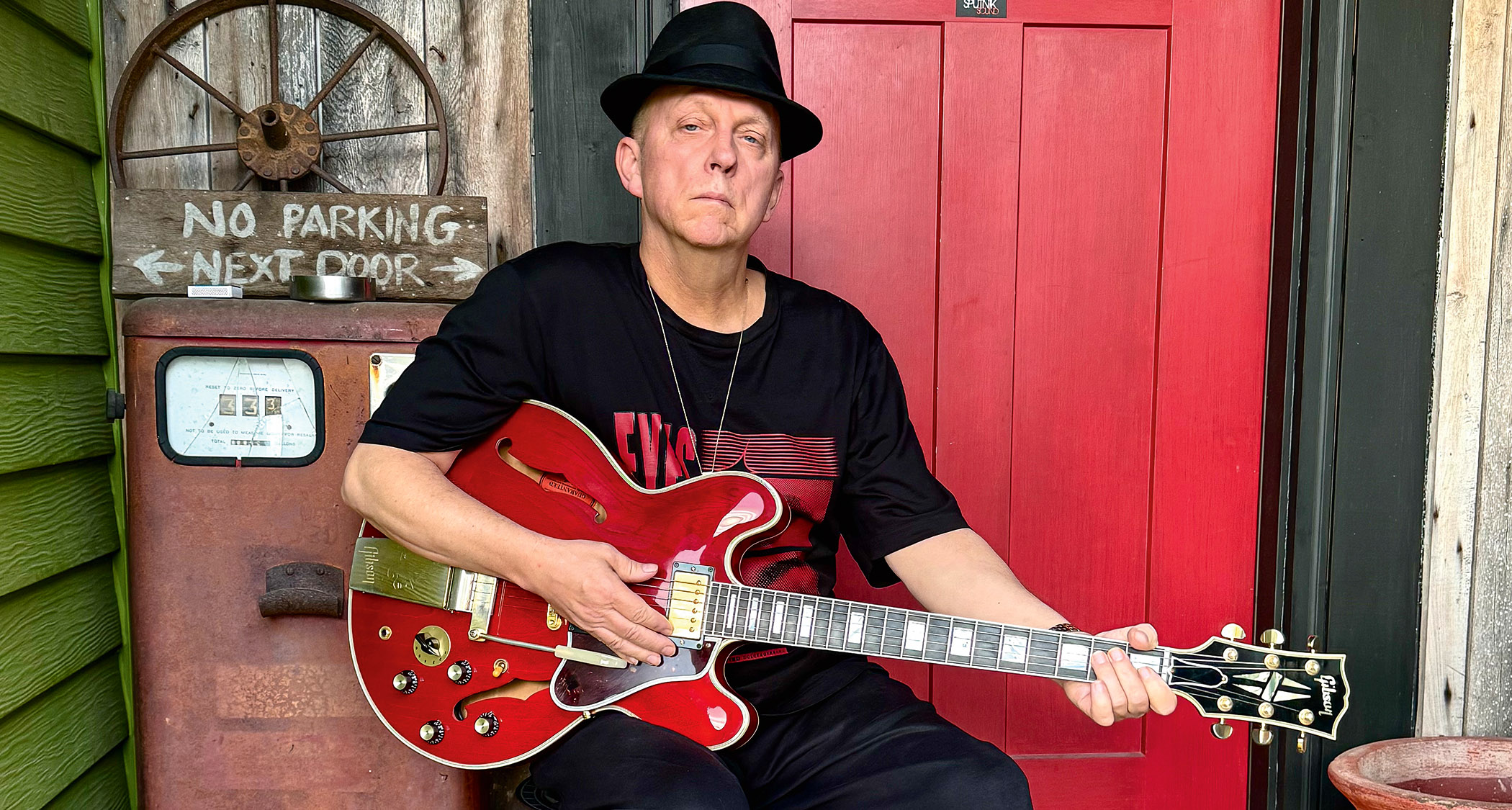
What guitar did Eric use?
A Strat. Which one? Well, he’s got a few, doesn’t he? He’d also brought an acoustic and a ’60s brown sunburst 335 – it was gorgeous. We did two days in the studio and normally they’d take the guitars home overnight, but I trusted the place so he left them. I asked Eric, ‘Can I play them?’ And he said, ‘Yeah, of course.’ So he went home and I had full licence to play his guitars. If that isn’t guitar-player love, I don’t know what the fuck is.
The truth is, I was never in circulation as a gun-for-hire. Eric doesn’t want someone who’s going to be showboating
You and Eric are old friends. Would you ever have considered joining his band?
I would watch him get a new guitar player and feel a little bit… whatever. And just think, ‘Well, he’s better for Eric because of this or that, fine, fair enough.’ I mean, Derek Trucks is astonishing. Doyle Bramhall II – he’s a great player, but I look at him and think, ‘There’s not much I can’t do that he’s doing.’
The truth is, I was never in circulation as a gun-for-hire. Eric doesn’t want someone who’s going to be showboating. But we’re just talking about idle daydreams – I never really thought I should be in Eric’s band.
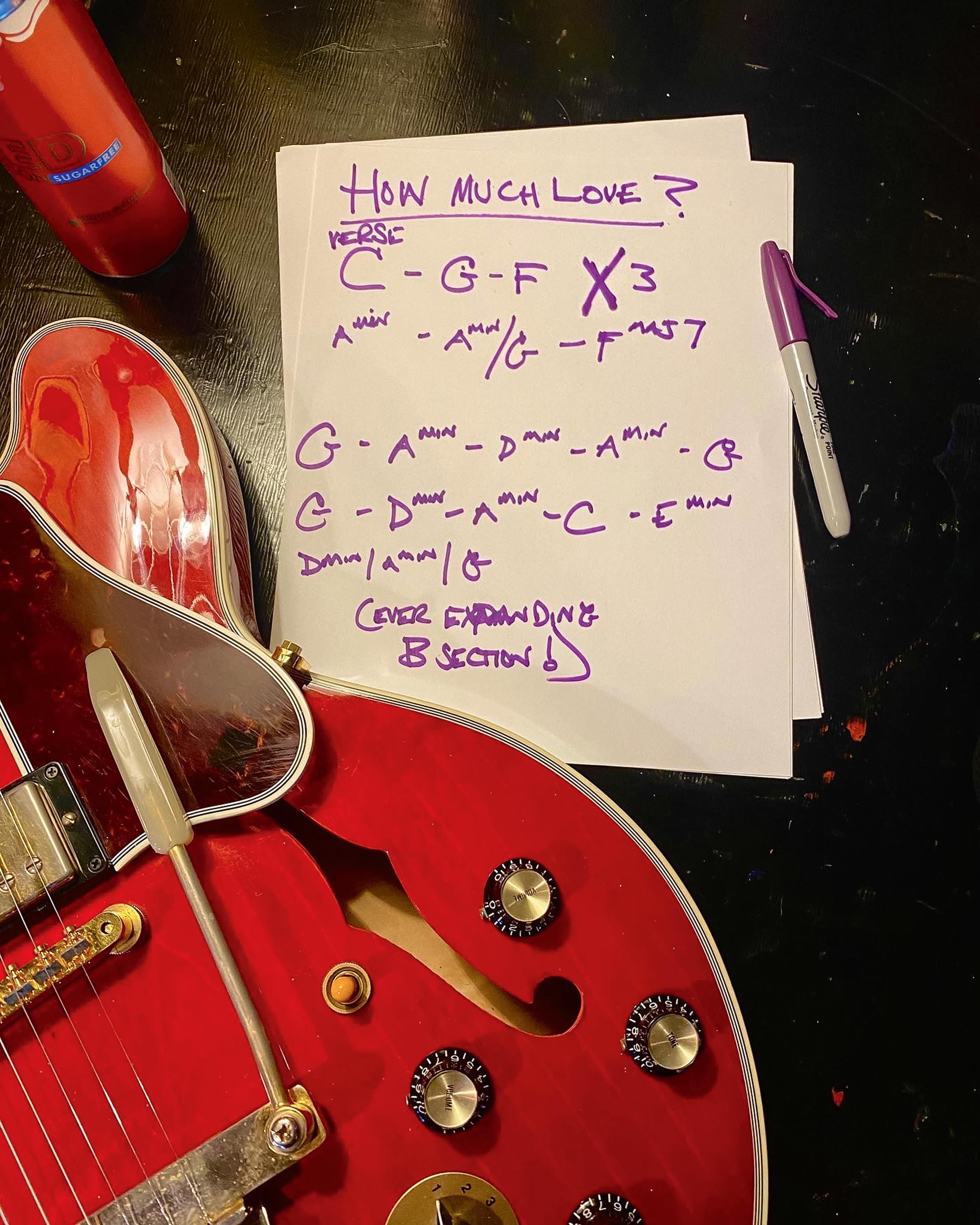
You sound omnipotent on the album. But has illness made it harder to sing, play, record?
Not yet. At the moment, I’m going through some weird thing with my ear, which, if it’s not sorted, could threaten things. I’ve got peripheral neuropathy, which is a side effect of chemo. But we’ll figure it out.
Do you think you’ll make more albums – or play any live shows again?
The truth is, you just don’t know with these things. I’ve had a rough few weeks. I’ve been to A&E, in and out of hospitals, bedridden, suffering the side effects of chemo and immunotherapy. But I want to play these songs live. I’d love to. So watch this space…
- Be the Love is out now via 333 Records.
- This article first appeared in Guitarist. Subscribe and save.
Henry Yates is a freelance journalist who has written about music for titles including The Guardian, Telegraph, NME, Classic Rock, Guitarist, Total Guitar and Metal Hammer. He is the author of Walter Trout's official biography, Rescued From Reality, a talking head on Times Radio and an interviewer who has spoken to Brian May, Jimmy Page, Ozzy Osbourne, Ronnie Wood, Dave Grohl and many more. As a guitarist with three decades' experience, he mostly plays a Fender Telecaster and Gibson Les Paul.
You must confirm your public display name before commenting
Please logout and then login again, you will then be prompted to enter your display name.


